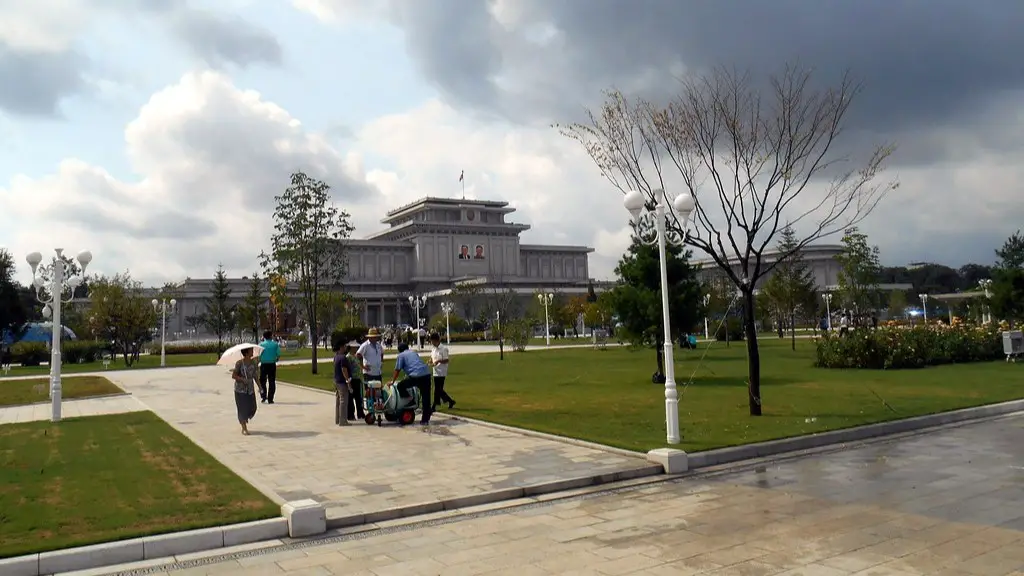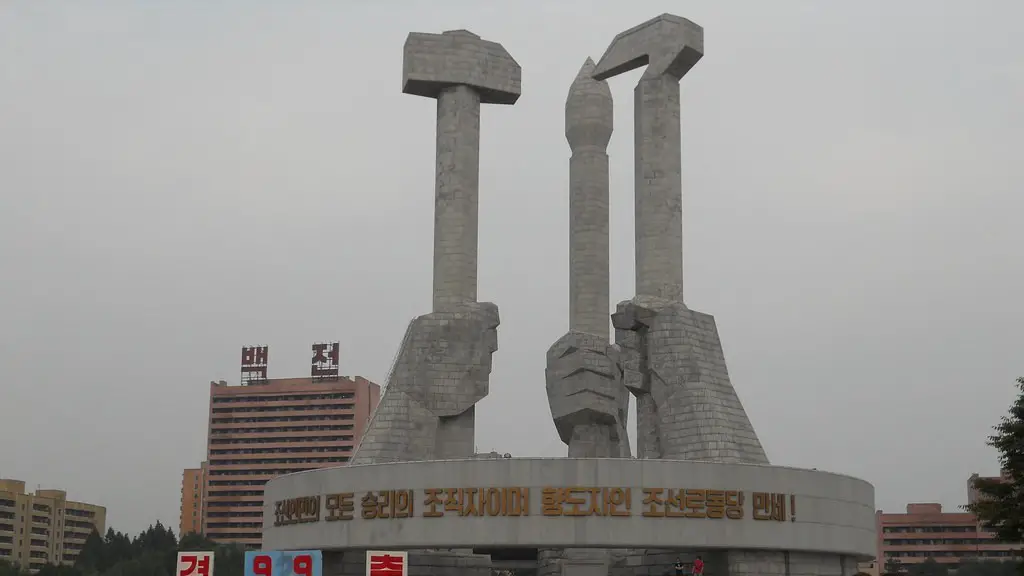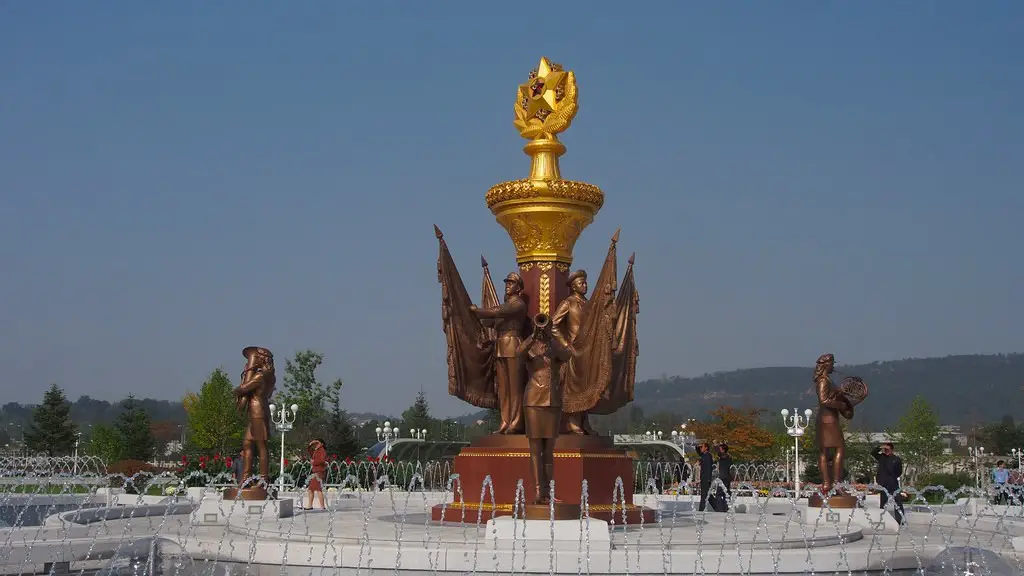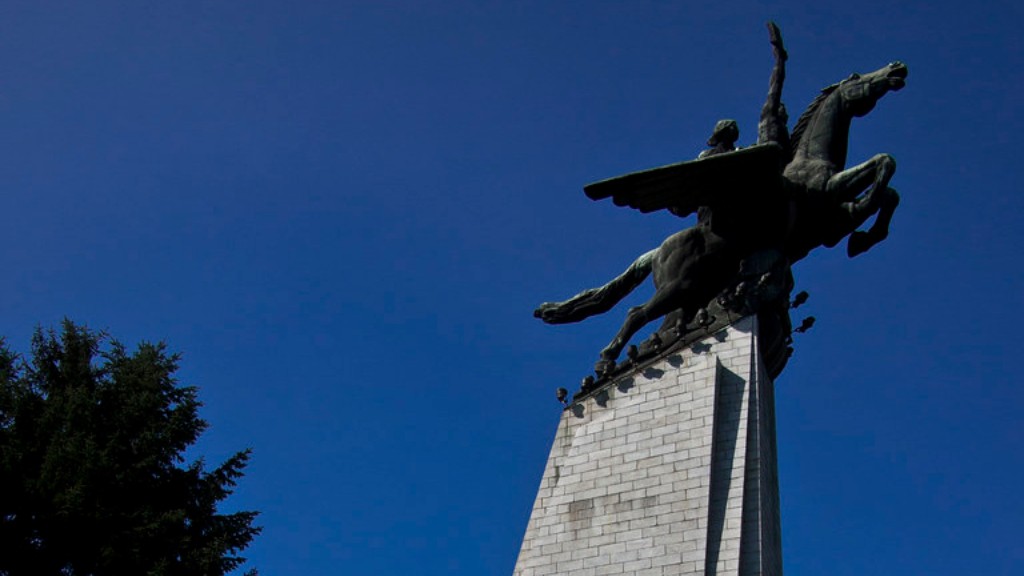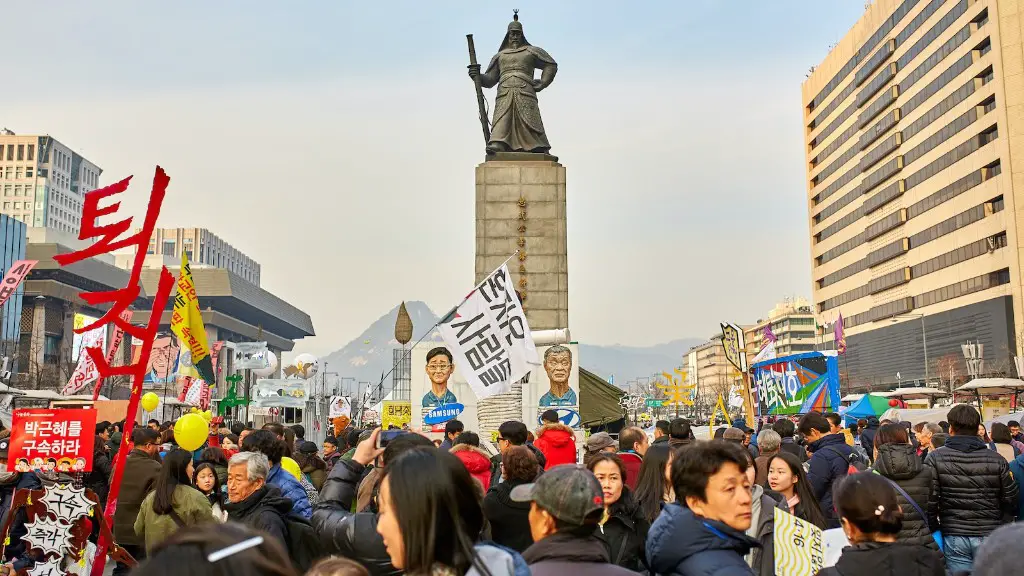North Korea
North Korea, officially known as the Democratic People’s Republic of Korea, has been ruled for more than sixty years by a dynasty of the same family. North Korea is an isolated and economically-strained nation, and its politics, policies and public opinion are heavily censored. North Korea is believed to be one of the world’s most oppressive regimes and is widely condemned internationally.
The appointment of the ruling family is rooted in the determination of North Korea’s first leader and founder, Kim Il Sung, to create a government that reflects his own beliefs and principles. He is still revered as the Eternal President of North Korea and the three generations of his descendants—Kim Jong Il, Kim Jong Un and Kim Jong Chul—have all continued his policies.
Kim Jong Un assumed the leadership of North Korea on December 17, 2011 following the death of his father, Kim Jong Il. He is widely reported to wield absolute authority in the country and his control is reinforced by the Korean People’s Army, one of the world’s largest troops and a pervasive propaganda machine.
The legitimacy of Kim Jong Un’s rule is largely attributed to ‘Kimilsungism-Kimjongilism’, a set of ideas and beliefs that it is based around the family’s political system known as ‘Juche’. It puts forward the idea of self reliance and national independence which is a central theme of Kim Il Sung’s leadership. This system is also heavily militarized, with North Korea having one of the world’s largest ground forces.
The government is highly authoritarian, with informants and secret police monitoring every move made by citizens. Public displays of any dissent are punished by imprisonment, torture or even execution. North Koreans are also not allowed to leave the country and those who try to do so are often arrested or punished.
The country’s human rights record is one of the worst in the world. According to the UN, North Koreans are subjected to torture, arbitrary arrest, and extrajudicial killings. The government also denies its citizens access to the internet and has suppressed freedom of expression and freedom of movement, even into neighboring countries.
The international community has long been concerned about the threat that North Korea poses and have imposed a number of economic sanctions in the hopes of bringing about change and stability in the region. In addition to this, there have been a number of international efforts to negotiate a solution, however no progress has yet been made and it is unclear whether this will change in the future.
North Korean Economy
Despite sanctions and lack of international aid, the North Korean economy has been surprisingly resilient and in recent years has been consistently growing. North Korea has a centrally planned economy, which means that the state decides which industries to invest in. Despite economic stagnation, there has been an increase in private enterprise and market activity over the past decade as the government has turned to the private sector for economic growth.
The country is heavily reliant on exports, and its main trading partners include China and Russia. The economy is heavily reliant on the inflow of foreign capital and the country has an unwritten agreement with China that it will not allow the economy to collapse. The country also has some access to international aid, although it is largely targeted towards humanitarian concerns.
The North Korean economy is also heavily dependent on its military, which is one of the most powerful militaries in the world. The military consumes an estimated 15 to 20 percent of the North Korean GDP and is responsible for providing large numbers of people with jobs and income.
In spite of its small size, North Korea has a strong tech sector, primarily focused on products related to nuclear weapons, missiles, and robotics. It is believed that the country’s nuclear weapons program has been heavily funded, and the country has made great strides in developing advanced technology in relation to its strategic weapons programs.
The country also invests heavily in propaganda and the cult of personality which surrounds the ruling family. The government uses media and art to display its belief in the ideology of ‘Juche’, and this is used to control the population and maintain loyalty to the regime.
Sanctions Imposed on North Korea
The international community has imposed a number of sanctions on North Korea in an effort to pressure the country to adhere to international law and to stop its development of nuclear weapons. The UN Security Council has imposed multiple sets of sanctions on North Korea, including restrictions on luxury goods, weapons sales, mineral trade, and financial transactions.
The US has also adopted additional unilateral sanctions, including a ban on US citizens travelling to North Korea, a prohibition on North Korean ships entering US ports, and a ban on US businesses selling goods to North Korean entities. This has had a damaging effect on the North Korean economy and has further isolated the country from the rest of the world.
Despite sanctions, there is evidence that North Korea is finding ways to circumvent them. In particular, there are concerns that North Korea is using the digital currency Bitcoin to evade US sanctions, and is also using docking facilities in Russia and China to facilitate the shipment of goods and goods related to the nuclear weapons program.
The sanctions have been effective in slowing down the progress of North Korea’s weapons programs, however, it is unclear when the country will make the decision to fully comply with international law.
The Future of North Korea
The future of North Korea remains uncertain as the country continues to be isolated from the rest of the world and beset by economic sanctions and poverty. Many countries have expressed a desire to open up diplomatic and economic ties with North Korea, but this has yet to be fully realized due to the country’s failure to comply with international law.
The future of North Korea also depends heavily on the leadership of Kim Jong Un and his ability to maintain control over the country. He is believed to be an effective leader and appears to enjoy strong support from the population, however it is unclear whether he will be able to continue to steer the country in the direction he desires.
Ultimately, the future of North Korea will likely be determined by the willingness of the international community to engage with the country in a diplomatic and constructive manner. It is unclear whether this will be possible, but it is clear that if the international community fails to take action, then the future of North Korea will remain uncertain and its people will likely continue to suffer.
International Relations with North Korea
International relations with North Korea have been frosty in recent years as the country has continued to develop its nuclear weapons program, suggesting that it is not willing to comply with international law or cooperate with the international community.
The US and its allies have expressed a desire to engage in diplomatic talks with North Korea, while at the same time imposing stricter sanctions on the country in an effort to pressure them. However, North Korea has so far been unwilling to comply and international attempts to engage in dialogue have been unsuccessful.
The US has also suggested that military action may be necessary to prevent North Korea from developing its nuclear capabilities, as it believes that this is a threat to international security. These tensions have made it difficult for the international community to find a way forward and it is unclear how the situation will be resolved.
At the same time, China and Russia have expressed a desire to engage in dialogue with North Korea and to help bring about a peaceful resolution to the crisis. However, it is unclear how successful they will be in doing so, as the North Koreans have so far refused to engage in talks or open up its borders.
In addition, North Korea’s relations with its neighbors in the region have been strained by its aggressive stance and its refusal to cooperate with the international community. South Korea in particular has been concerned about the increasing threat from its northern neighbor, and has expressed its desire to open up diplomatic dialogue with North Korea.
Conclusion
North Korea is an isolated and economically-strained nation, and its politics, policies and public opinion are heavily censored. Despite this, the economy has been surprisingly resilient and in recent years has been consistently growing. The legitimacy of Kim Jong Un’s rule is largely attributed to ‘Kimilsungism-Kimjongilism’ and is reinforced by the Korean People’s Army. The country’s human rights record is one of the worst in the world, and the international community has imposed a number of economic sanctions in the hopes of bringing about change and stability in the region.
The future of North Korea remains uncertain as the country continues to be isolated from the rest of the world and beset by economic sanctions and poverty. International relations with North Korea have been strained by its aggressive stance and its refusal to comply with international law, and many countries have expressed a desire to open up diplomatic and economic ties with North Korea.
